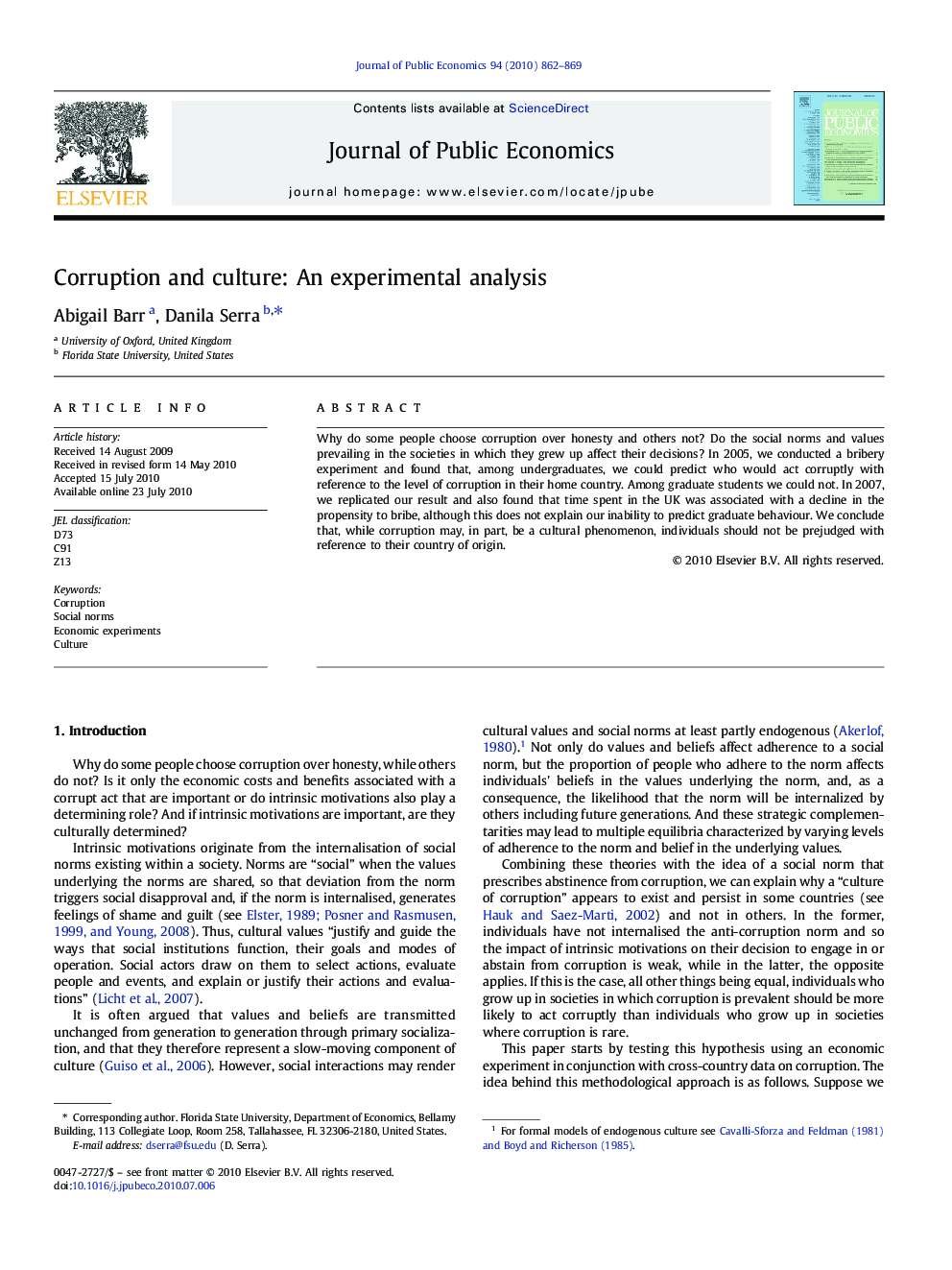| Article ID | Journal | Published Year | Pages | File Type |
|---|---|---|---|---|
| 969802 | Journal of Public Economics | 2010 | 8 Pages |
Why do some people choose corruption over honesty and others not? Do the social norms and values prevailing in the societies in which they grew up affect their decisions? In 2005, we conducted a bribery experiment and found that, among undergraduates, we could predict who would act corruptly with reference to the level of corruption in their home country. Among graduate students we could not. In 2007, we replicated our result and also found that time spent in the UK was associated with a decline in the propensity to bribe, although this does not explain our inability to predict graduate behaviour. We conclude that, while corruption may, in part, be a cultural phenomenon, individuals should not be prejudged with reference to their country of origin.
